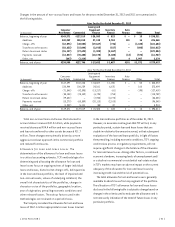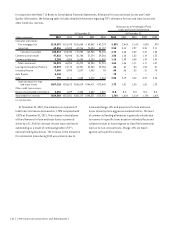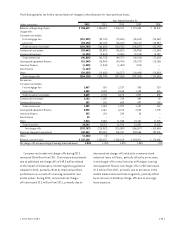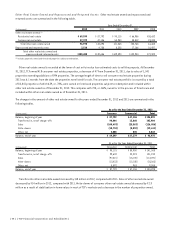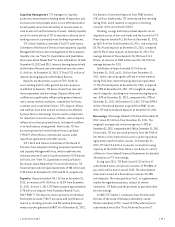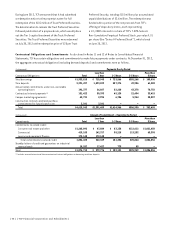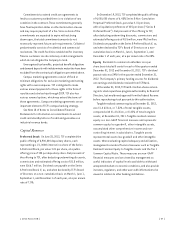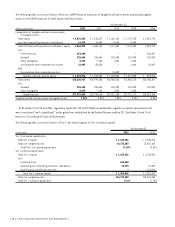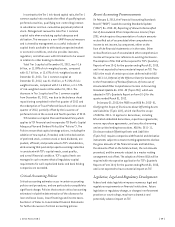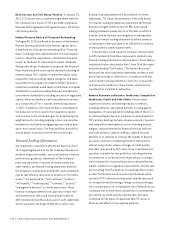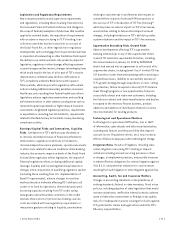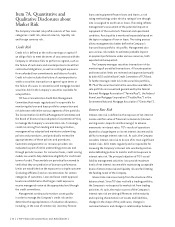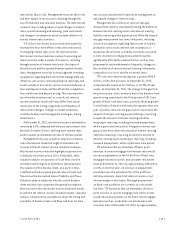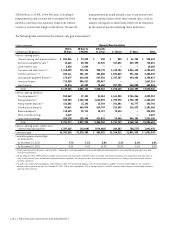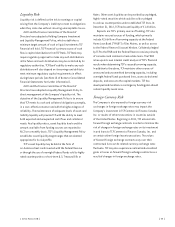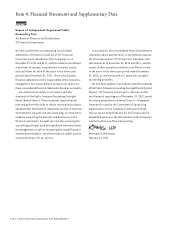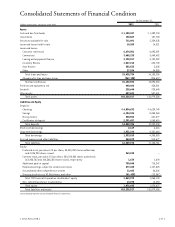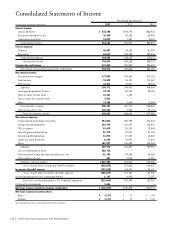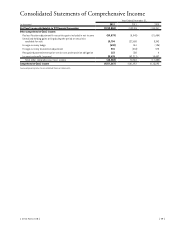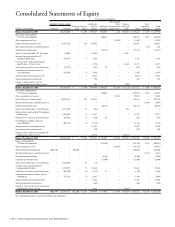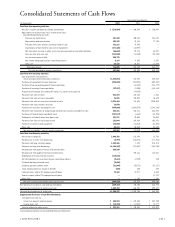TCF Bank 2012 Annual Report Download - page 67
Download and view the complete annual report
Please find page 67 of the 2012 TCF Bank annual report below. You can navigate through the pages in the report by either clicking on the pages listed below, or by using the keyword search tool below to find specific information within the annual report.Legislative and Regulatory Requirements
New consumer protection and supervisory requirements
and regulations, including those resulting from action by
the Consumer Financial Protection Bureau and changes in
the scope of Federal preemption of state laws that could be
applied to national banks; the imposition of requirements
with an adverse impact relating to TCF’s lending, loan
collection and other business activities as a result of
the Dodd-Frank Act, or other legislative or regulatory
developments such as mortgage foreclosure moratorium laws
or imposition of underwriting or other limitations that impact
the ability to use certain variable-rate products; impact of
legislative, regulatory or other changes affecting customer
account charges and fee income; changes to bankruptcy laws
which would result in the loss of all or part of TCF’s security
interest due to collateral value declines; deficiencies in
TCF’s compliance under the Bank Secrecy Act in past or
future periods, which may result in regulatory enforcement
action including additional monetary penalties; increased
health care costs resulting from Federal health care reform
legislation; adverse regulatory examinations and resulting
enforcement actions or other adverse consequences such as
increased capital requirements or higher deposit insurance
assessments; heightened regulatory practices, requirements
or expectations, including, but not limited to, requirements
related to the Bank Secrecy Act and anti-money laundering
compliance activity.
Earnings/Capital Risks and Constraints, Liquidity
Risks Limitations on TCF’s ability to pay dividends or
to increase dividends because of financial performance
deterioration, regulatory restrictions or limitations;
increased deposit insurance premiums, special assessments
or other costs related to adverse conditions in the banking
industry, the economic impact on banks of the Dodd-Frank
Act and other regulatory reform legislation; the impact of
financial regulatory reform, including additional capital,
leverage, liquidity and risk management requirements or
changes in the composition of qualifying regulatory capital
(including those resulting from U.S. implementation of
Basel III requirements); adverse changes in securities
markets directly or indirectly affecting TCF’s ability to sell
assets or to fund its operations; diminished unsecured
borrowing capacity resulting from TCF credit rating
downgrades and unfavorable conditions in the credit
markets that restrict or limit various funding sources;
costs associated with new regulatory requirements or
interpretive guidance relating to liquidity; uncertainties
relating to customer opt-in preferences with respect to
overdraft fees on point of sale and ATM transactions or
the success of TCF’s introduction of TCF Free CheckingSM
which may have an adverse impact on TCF’s fee revenue;
uncertainties relating to future retail deposit account
changes, including limitations on TCF’s ability to predict
customer behavior and the impact on TCF’s fee revenues.
Supermarket Branching Risk; Growth Risks
Adverse developments affecting TCF’s supermarket
banking relationships or any of the supermarket chains
in which TCF maintains supermarket branches, including
the announcement on January 10, 2013 by SUPERVALU
that it had entered into an agreement to sell several of its
supermarket chains, including Jewel-Osco® in which TCF has
157 branches; slower than anticipated growth in existing or
acquired businesses; inability to successfully execute on
TCF’s growth strategy through acquisitions or cross-selling
opportunities; failure to expand or diversify TCF’s balance
sheet through programs or new opportunities; failure to
successfully attract and retain new customers; including
the failure to attract and retain manufacturers and dealers
to expand to the inventory finance business, product
additions and addition of distribution channels (or entry
into new markets) for existing products.
Technological and Operational Matters
Technological or operational difficulties, loss or theft
of information, cyber attacks and other security breaches,
counterparty failures and the possibility that deposit
account losses (fraudulent checks, etc.) may increase;
effects of failure to keep pace with technological change.
Litigation Risks Results of litigation, including class
action litigation concerning TCF’s lending or deposit
activities including account servicing processes or fees
or charges, or employment practices, and possible increases
in indemnification obligations for certain litigation against
Visa U.S.A. and potential reductions in card revenues
resulting from such litigation or other litigation against Visa.
Accounting, Audit, Tax and Insurance Matters
Changes in accounting standards or interpretations of
existing standards; federal or state monetary, fiscal or tax
policies, including adoption of state legislation that would
increase state taxes; ineffective internal controls; adverse
state or federal tax assessments or findings in tax audits;
lack of or inadequate insurance coverage for claims against
TCF; potential for claims and legal action related to TCF’s
fiduciary responsibilities.
{ 2012 Form 10K } { 51 }


